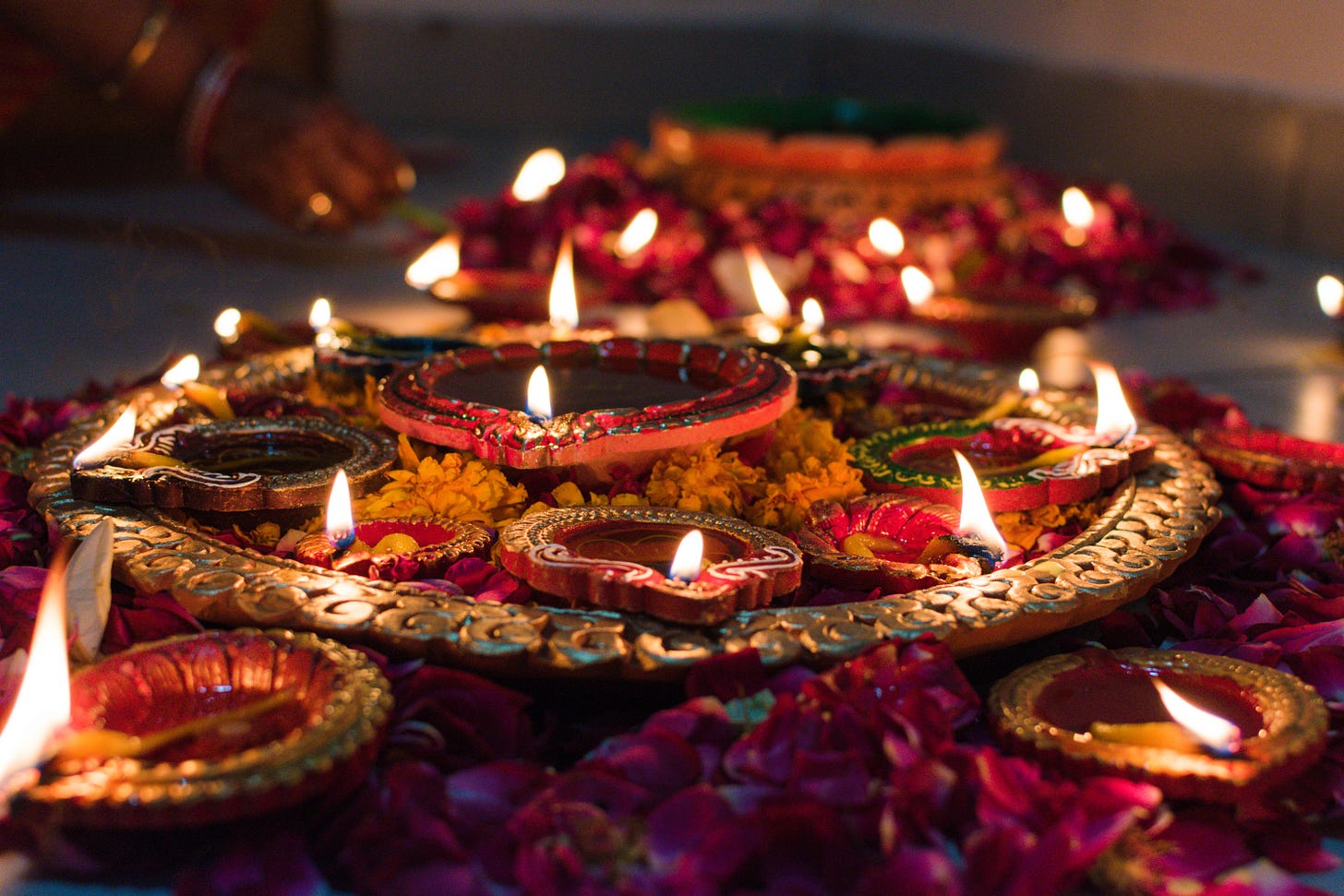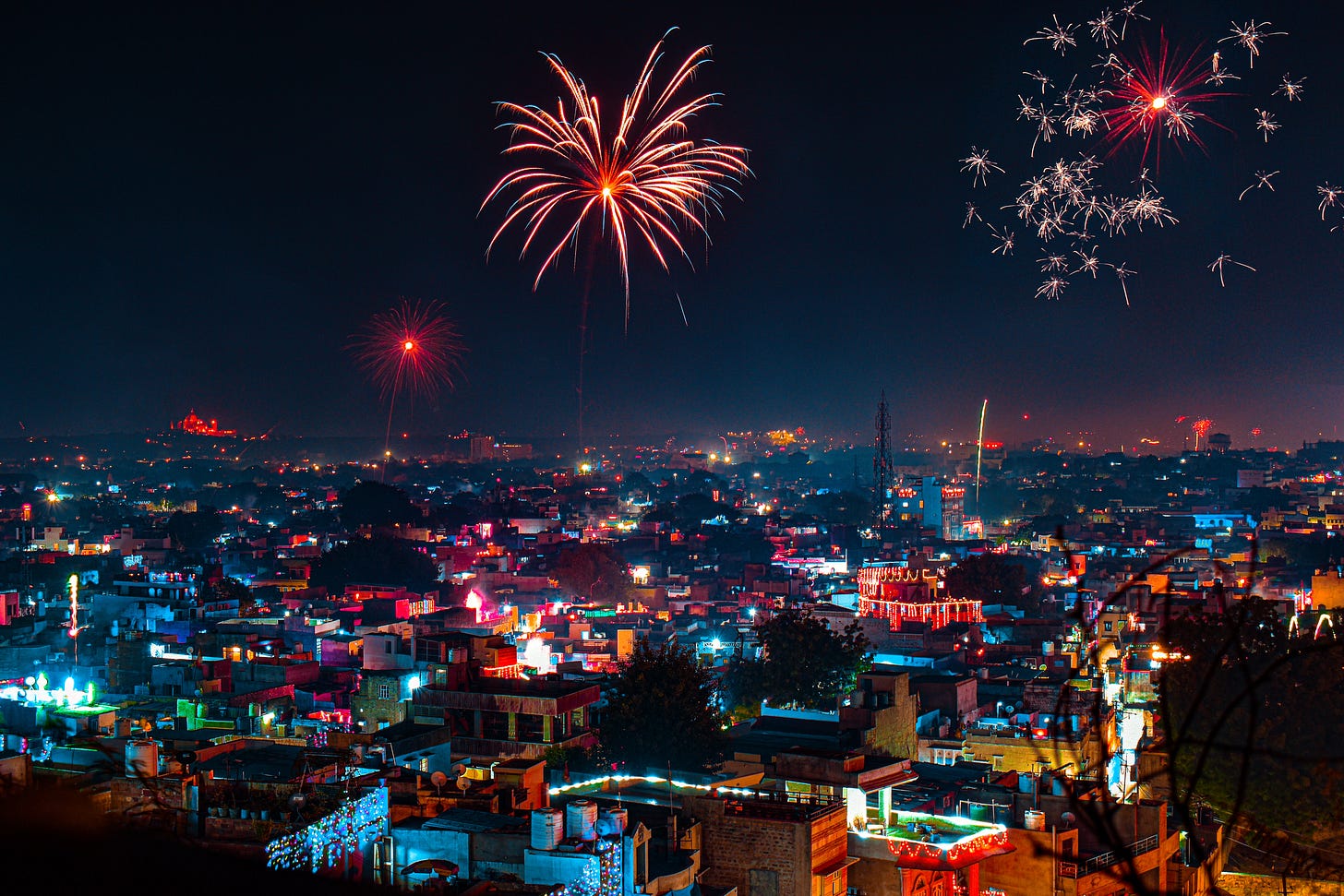A version of this essay has been published by Firstpost.com at Opinion | Diwali, the powers that be, and civil disobedience (firstpost.com) and you can read it there. You can listen to the podcast by clicking the ‘play’ button above.

I have personally noticed an odd phenomenon. At 6am, there is the chanting of the Venkatesa Suprabhatham from a nearby temple that I can hear for about 15 minutes. But lately, I can hardly hear it, because the state government has imposed a maximum of 45 decibels on all Hindu temple loudspeakers.
On the other hand, a new mosque issues its call at 5am. This is recent: earlier the calls were less loud and more distant. On Sundays, a nearby church used to have its singing, clapping, and sermons till about 11am. Now they have hiked up the sound levels and the program goes on the entire day.
This is symptomatic of state-sanctioned discrimination against Hindu culture, religion and rituals. Indeed, during Navaratri, the CM of Kerala said (I paraphrase): “Temples are public, but churches and mosques are private”. This appears violative of the Constitutional guarantee of equal treatment irrespective of religion. At around the same time, the Kerala government forcibly captured a Shiva temple in Kannur, against the strenuous objections of protesting Hindus whom they physically ejected.
… deleted
The fact that ordinary Hindus performed civil disobedience, in what can only be termed Salt Satyagraha 2.0, by peacefully asserting their right to burst Deepavali firecrackers as they wished, is a sign that the days of passive acquiescence to motivated nonsense are over.
6 Nov 2021











